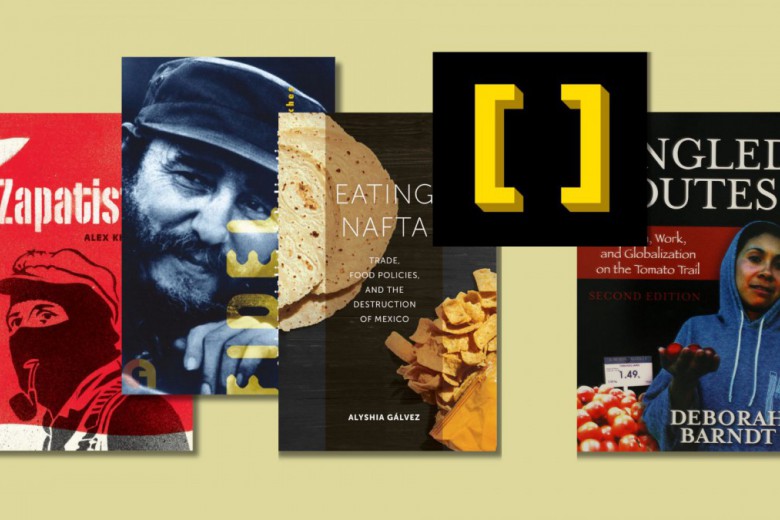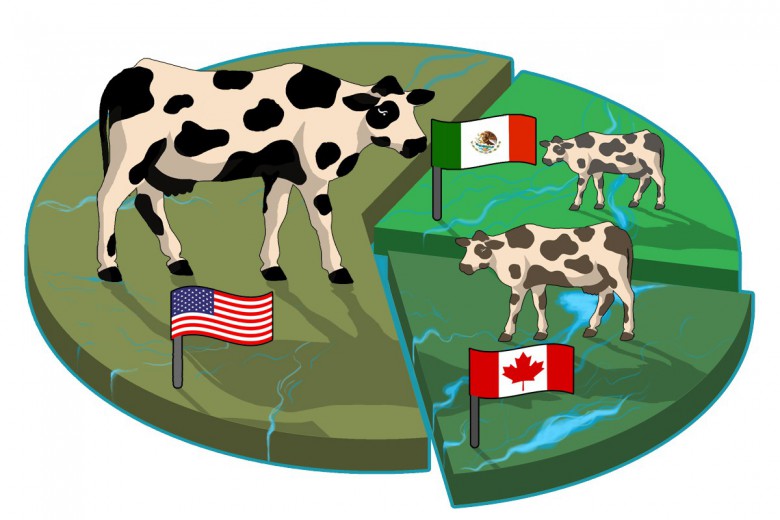Eli Lilly and Company is an Indianapolis-based pharmaceutical giant that made $4.1 billion in profit in 2012, a touch down from $4.3 billion the year before. As I struggle through reading the legal case the company is making in its submission under the North America Free Trade Agreement’s Chapter 11, I reflect on whether lawyers too use long words, opaque syntax, thick reams of paper, to bury the scent of greed. I am familiar with these tricks. In medicine, as in law, we lapse into technical jargon, hiding behind words to disguise our own unease with ugliness.
Over the last year, Eli Lilly formally announced its intention to submit a claim against the Government of Canada for cancelling its patents on olanzapine and atomoxetine, following a suit launched by a generic manufacturer. The suit led to a decision that allows cheaper formulations of these medications for schizophrenia and attention-deficit hyperactivity disorder onto the market. Eli Lilly is seeking $500 million in compensation from Canadians.
Last week, Eli Lilly officially submitted its suit to the NAFTA tribunal, arguing that Canada’s standard of measuring the outcomes of a drug against the claims of its original patent application, rather than just useful, is too high and too arbitrary, thereby violating Canada’s obligations under NAFTA to protect foreign investors. “The standard seems to be that there is no standard,” says a statement issued by Doug Norman, the vice-president of the company, though the Federal Court of Canada is quite clear in its ruling that the clinical trial used to show olanzapine’s utility, for example, was “too small and too short” to warrant extending the patent.
Very simply, Eli Lilly is suggesting that its investors’ expectation that a product provide profit is more important than Canada’s expectation that the product live up to its original promise. This doctrine of investor rights – which is increasingly enshrined and enforced by trade agreements and national bodies of law – reveals how the mantra of free trade erodes local control, pushing decision-making power away from people actually affected by policy, out to inaccessible, inscrutable bodies of authority.
Lawrence Herman, a lawyer who previously worked as a trade official, notes to Politico that Eli Lilly is not so much interested in $500 million in compensation as it is in compelling Parliament to limit the power of courts in rescinding patents. Herman says the claim is an “attack on judicial procedure” rather than the administrative or legislative decisions that NAFTA regulates.
Canada is not simply a victim here, as this issue stretches far beyond a critique of pharmaceutical development (though that topic is worthy of debate itself). Canadian corporations themselves have merrily used the spread of the doctrine of investor rights to their own benefit. For example, Vancouver’s Pacific Rim, now backed by an Australian investment firm, has taken the government of El Salvador to court to challenge its moratorium on gold mining, saying it violates the country’s duty to protect foreign investors above and beyond its duty to protect its own water supply.
Civil society in El Salvador has organised a massive resistance to this bid by a few men in Melbourne and Vancouver to decide whether children in its mountain villages die of diarrhoea or not. The Canadian response to Eli Lilly’s challenge to our right to access medications has been more muted, perhaps because the principle of investor rights serves our position of global privilege well. But Eli Lilly’s suit requires our vigilance, if not for the content, then for the principle.
The principle demands that we shame Pacific Rim’s board of directors into dropping the suit against El Salvador. The principle also demands that we educate ourselves on the twelve new free trade agreements which Canada is in the process of negotiating, most notably with the European Union, India, and Japan. We already have dozens of bilateral treaties across the world protecting foreign investments (FIPAs). Eli Lilly has clearly seen the future. Who will be next?






